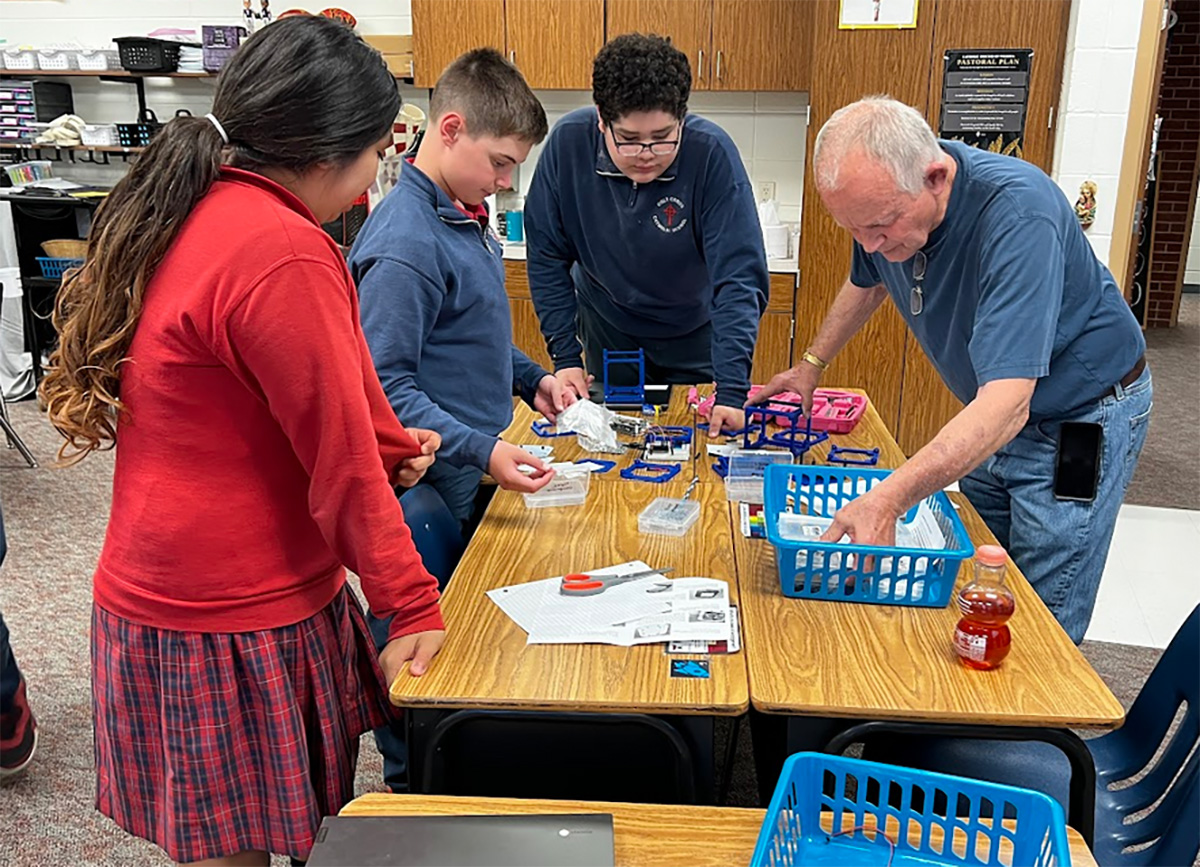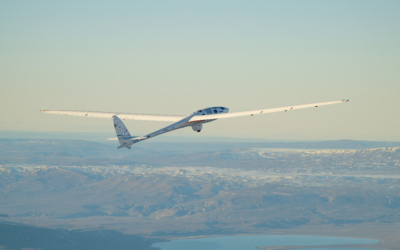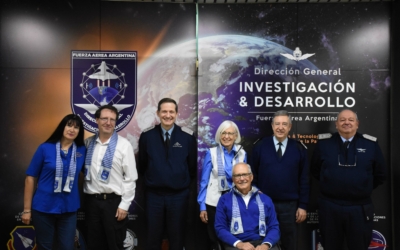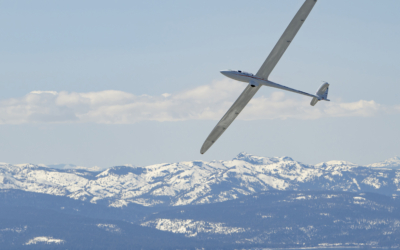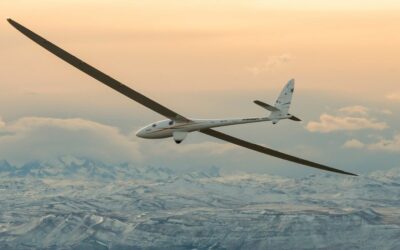MINDEN, Nev., July 12, 2023 – While the school year for most students in the U.S. may have ended, a group participating in a STEM program with Airbus Perlan Mission II is preparing to watch their science projects take flight into the stratosphere later this month aboard an experimental pressurized glider as it attempts to reach 90,000 feet — higher than any other piloted airplane in the world.
Students from schools in Kansas, Kentucky, Maine and New Mexico have been working since the beginning of the year with The Perlan Project, an aerospace nonprofit based in Minden, Nevada, to design and build experiments in CubeSats that will soar to the edge of space on board the Perlan 2 sailplane. The one-of-a-kind glider has two pilots but no engine and is expected to set a new aviation altitude world record this year for piloted level flight.
Airbus Perlan Mission II is an internationally acclaimed initiative operated by The Perlan Project, a nonprofit advancing discovery and promoting education related to high-altitude flight, weather and climate change.
“We’re pushing the boundaries of aviation, reaching for stars and doing some great science in the stratosphere along the way,” said Ed Warnock, CEO of The Perlan Project. “There are answers in the upper atmosphere that can help us unlock new discoveries and create solutions to improve our world. We’re heading to 90,000 feet and want to take every classroom and science enthusiast along for the ride with us to inspire the next generation of aerospace engineers, environmental researchers and educators.”
The students’ science experiments range from testing radiation levels to listening for turbulence in the sounds of the stratosphere. The student CubeSats will be stored in the science bay of the Perlan 2 glider as it soars above the Andes in the Patagonia region of Argentina. Currently, the glider is on its way to El Calafate, where it is expected to begin flights the last week of July.
Eight U.S. schools are participating in the 2023 Perlan CubeSat program with Teachers in Space Inc., a nonprofit educational organization that stimulates student interest in science, technology, engineering and mathematics. The student-made experiments were provided to Teachers in Space by teachers who participated in the organization’s space flight experiments workshops. Both the workshops and student projects were funded in part by the Maine Space Grant Consortium, the New Mexico Space Grant Consortium and the Cosmosphere in Hutchinson, Kansas.
The following experiments will fly aboard Perlan 2.
Kansas:
- Turner Elementary – Kansas City; Project: Temperature and Humidity Analyzer.
- Holy Cross Catholic School – Hutchinson; Project: (Video) Lead Radiation Shielding Experiment.
Maine:
- St. John’s Catholic School – Brunswick; Project: Atmosphere and Radiation Investigator.
- Sipayik Elementary School – Pleasant Point; Project: Bismuth and Barium Radiation Shielding Experiment.
- Machias Memorial High School – Machias; Project: Magnetic Field Observer.
New Mexico:
- Riverside Elementary School – Sunland Park; Project: Workshop CubeSat Trial.
- Gadsden High School – Anthony; Project: Environmental Explorer.
- NMSGC – New Mexico State University – Las Cruces; Project: Atmospheric Air Quality Examiner.
New York:
- Teachers in Space – New York; Project: 2U Experimental Control Platform Aboard Egrett Tow Plane.
University of Kentucky
Another exciting science project soaring aboard the Perlan 2 this summer was developed by University of Kentucky associate professor Sean Bailey, Ph.D., and associate engineer Ryan Nolin, with post-flight data analysis to be completed by university students. Bailey’s group is collaborating with Stratodynamics Inc., a U.S. affiliate of Stratodynamics Aviation Inc., which is a member of the Perlan Atmospheric Research Team (PARTners). Together, they’ve developed a CubeSat that will use an infrasonic microphone to observe and record subaudible acoustic signatures in the upper atmosphere. These scientists anticipate that the payload will record the acoustic signatures generated by wind shear events such as clear-air turbulence. The innovative acoustic sensor was originally developed by NASA scientists and has been licensed by Stratodynamics Inc.
“The Perlan 2’s flight regime is so different from a traditional commercial jet that this presents a unique opportunity to capture infrasound that is created by waves or convection,” said Gary Pundsack, CEO of Stratodynamics. “Our long-term goal is to confirm that a microphone can detect turbulence ahead of the aircraft, which has implications for future use in systems that help inform pilots and improve flight safety for passengers and crew.”
Earlier World Records
The Airbus Perlan Mission II team has previously set four aviation world records in the Perlan 2. This season it will attempt to surpass its current standing record of more than 76,124 feet, set in 2018. The internationally lauded initiative is title-sponsored by global aerospace leader Airbus. The program is supported by top science, aerospace and technology companies and experts from around the world.
Learn more and sign up to follow and watch live flights of the Perlan 2 through the Perlan Virtual Cockpit at www.perlanproject.org.
#AirbusPerlanMissionII #PerlanProject #Perlan2 #WorldRecord #STEM #Climate #CubeSat
VISUALS: For photos and videos supporting this story, go to bitly.com/perlanpress.
About Airbus Perlan Mission II
Airbus Perlan Mission II is an initiative to fly an engineless glider to the edge of space — higher than any other winged aircraft has operated in piloted level flight — to open up a world of discoveries related to high-altitude flight, weather and climate change. This historic endeavor is the culmination of decades of research and engineering innovation and the work of a tireless international team of aviators and scientists who volunteer their time and expertise for the nonprofit The Perlan Project. The initiative, based in Minden, Nevada, is supported by Airbus and a group of other sponsors that includes Dennis Tito, Weather Extreme Ltd., Raytheon (United Technologies), BRS Aerospace and Thales.
Media Contact
Kristina Messner
The Perlan Project
+1 703 716 3181
kristina@messnermediagroup.com

